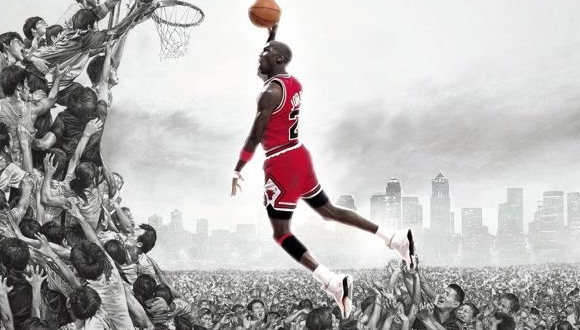Michael Jordan has recently joined the ranks of scores of American (and Chinese) celebrities that had to turn to the Chinese courts to protect their personal names. However, unfortunately for Michael Jordan, his case did not have a happy ending.
The Beijing Higher People’s Court — the highest court for ordinary administrative trademark appeals — has recently rejected Michael Jordan’s invalidation suit against a series of “乔丹” and “QIAODAN” trademarks.
“乔丹”, pronounced “Qiaodan”, is arguably the Chinese equivalent for (Michael) Jordan, at least when Chinese people first knew about him. In China, names and brands are usually translated into Chinese, so the Chinese public can easily refer to them. However, foreign companies and celebrities often only register their Western names, leaving their Chinese name unprotected. That’s exactly what happened in the case at hand. The basketball player then unfortunately waited too long to act and meanwhile the Chinese brand of products gained immense reputation over the years.
When basketball first became popular in China in the 1990s, Michael Jordan registered only his English name as a trademark. A few years later, Chinese company Qiaodan Sport registered Jordan’s Chinese name, his back number 23 and a logo resembling a basketball player. After Qiaodan Sport used those marks for almost ten years, Michael Jordan finally filed a trademark invalidation action. This action turned out to be an uphill battle, he lost each stage of it, including the recent appeal procedure before the Beijing Higher People’s Court.
Michael Jordan nevertheless had high hopes at the outset, and justifiably so, since other NBA stars had in the past already achieved what he was aiming for. In fact, only about a year ago, in January 2014, the very same Beijing Higher People’s Court invalidated the trademark “Iverson” upon request from NBA star Allen Iverson, on the basis of his name right. Moreover, the Chinese NBA star Yao Ming also had previously successfully defended his name against registrations by a series of Chinese ‘trademark squatters.’
Ming also tried to use the media to assist but unfortunately by that stage the Chinese brand was considered a brand on its own and had nationalistic following.
Then why did the Beijing court grant Allen Iverson’s very similar request, while it rejected Michael Jordan’s request? The reason lies in the very different factual constellations of these cases. The first, and most obvious difference was that Allen Iverson filed his invalidation request almost immediately after the Iverson trademark application had been filed, while Michael Jordan waited for almost a decade to do the same for the Qiaodan-marks. This gave Qiaodan Sport the time to establish its brand as a (moreover officially recognized) well-known trademark, by e.g. investing heavily in advertising (over 10m USD in 2012), and establishing a large network of over 5,700 retail outlets throughout China. Finally, in the Allen Iverson case, the alleged infringer also made explicit reference to Allen Iverson when promoting its goods. Qiaodan Sport on the other hand at most implicitly suggested a connection with Michael Jordan by using his unregistered Chinese name and back number 23.
It is therefore, upon closer inspection, not very surprising that the Beijing Higher Court came to opposite conclusions in these cases. In the Qiaodan case, the court held first and foremost that Qiaodan Sport had actively used its Qiaodan-marks in the course of bona fide trade for a long time, and had thereby acquired a strong reputation over time. The public therefore connected goods bearing the Qiaodan-marks with Qiaodan Sports instead of with Michael Jordan. Moreover, the Court also considered that the Qiaodan wasn’t but one of the Chinese transliterations for Jordan, and held that Jordan is a very common American surname which doesn’t necessarily refer to Michael Jordan. The court therefore brushed aside Michael Jordan’s name right and trademark claims in their entirety.
Michael Jordan has nevertheless already announced that he won’t bury the hatchet just yet. According to several press reports, he will file for a leave to appeal with the Supreme People’s Court, which generally only grants retrials in case of manifest inequity or gross violation of the rules of procedure. Given the factual circumstances of the case, it remains doubtful whether the highest Chinese Court will grant Michael Jordan’s request.
The Michael Jordan v Qiaodan case is somewhat reminiscent of the very recent New Balance case, where New Balance was ordered to pay 98 million RMB to a Chinese company that had — once more — registered New Balance’s Chinese name before New Balance did. The case is being appealed. The core message that these cases present, is that it is indispensable to devise a thorough China IP strategy before entering China, which must include securing marks for all Western and Chinese names and brands, before others do.
As Allen Iverson, Yao Ming, Kate Moss, and even James Bond have demonstrated, successfully defending trademarks and name rights in China is definitely possible, as long as you look before you leap, even if you are a world-famous NBA star.
